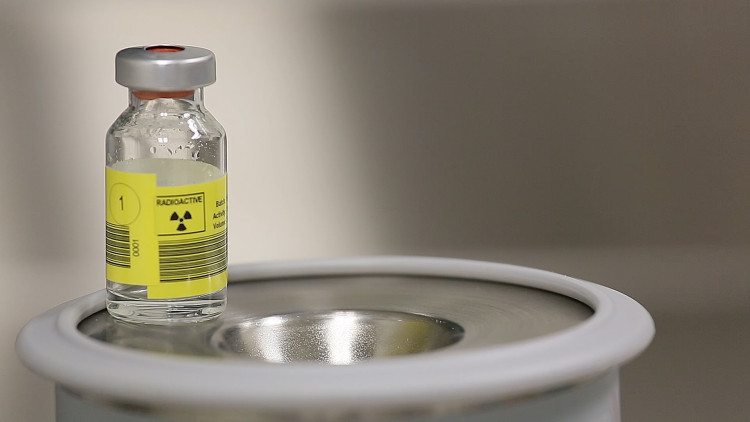The International Atomic Energy Agency (IAEA) started a four-year project to help 17 African countries produce and apply vital radiopharmaceuticals for treating and managing cancer and other common diseases.
The new project builds on a previous IAEA effort to train nuclear medicine professionals, pharmacists and technicians in the safe preparation and administration of these medical drugs. It will step up education activities to create a certification process for radiopharmacists, and provide expert advice to countries in upgrading nuclear medicine facilities to handle radiopharmaceuticals.
“Many African countries offer nuclear medicine services but have limited radiopharmacy capacities,” said Shaukat Abdulrazak, Director of the Division for Africa in the IAEA's Technical Cooperation Department. “The IAEA has previously helped the continent through equipment and more than 20 fellowships and Master of Sciences degrees in this field, but there is a need to expand these efforts with long-term educational opportunities in Africa.”
Representatives from the participating countries – Algeria, Burkina Faso, Cameroon, Egypt, Ethiopia, Kenya, Mauritius, Morocco, Namibia, Niger, Nigeria, Senegal, South Africa, Sudan, Tunisia, Uganda and Zambia – met this week with IAEA experts in Kampala, Uganda, to discuss the implementation of the project.
Radiopharmaceuticals are medicines that contain small amounts of radioactive isotopes. They need to be produced under carefully controlled conditions and tested for quality before being given to patients. “Their production requires the handling of radioactive substances, which increases the need for more stringent controls,” said Amirreza Jalilian, a chemist at the Division of Physical and Chemical Sciences of the IAEA’s Department of Nuclear Sciences and Applications.
The medical drugs can be used either for diagnostic or therapeutic purposes. The vast majority – 85 per cent – are used for medical imaging, providing doctors with a better internal picture of a patient’s condition.
Originally developed to diagnose and treat cancer, radiopharmaceuticals have evolved to become indispensable in the management of heart, kidney and bone diseases, as well as brain disorders such as Alzheimer’s, dementia and Parkinson’s.
Technetium-99m (Tc-99m) is the most widely used radioisotope for medical diagnosis. It has a short half-life, so it needs to be extracted from its parent radioisotope Molybdenum-99 (Mo-99) locally and given to a patient within hours. While large-scale production of Mo-99 can only be done in specialized facilities and is limited to a handful of countries, the extraction of Tc-99m at hospitals and nuclear medicine centres is straight forward. The radioisotope is extracted from Mo-99 using a generator the size of a coffee-machine, mixed in a vial with the appropriate molecule, given to a patient and traced using a relatively inexpensive gamma camera.
The field, however, evolves rapidly, and more advanced diagnostic techniques such as positron emission tomography (PET) are becoming commonplace. “These radiopharmaceuticals are not only more complicated to prepare, but the quality control tests are also very different,” said Jalilian. “There is a higher dose involved, and the nature of radiation is different and can also damage healthy parts of the body if prepared incorrectly.”
Several African countries plan to expand or upgrade their nuclear medicine- and radiopharmacy facilities, including for the future production of PET radiopharmaceuticals. The project aims to prepare countries for such expansion and to develop a new generation of qualified professionals that can produce and dispense doses according to appropriate standards.
Morocco, which has developed a radiopharmaceutical post-graduate programme with IAEA support, is looking to establish a Master’s Programme to train professionals from the region. “Radiopharmaceuticals are an essential part of medical procedures,” said Naoual Bentaleb, radiopharmacist at Morocco’s CNESTEN. “We want to support and provide technical expertise to ensure their regular production and availability in Africa.”
The IAEA assists countries to improve nuclear medicine services through training and equipment, and provides advice on quality assurance systems for their safe use.


